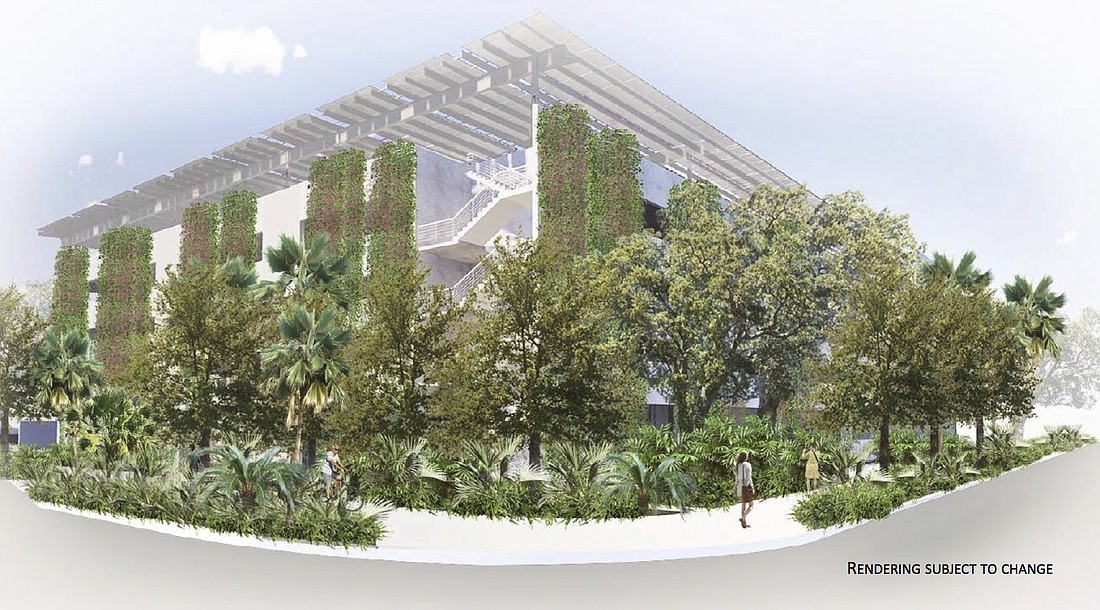- January 22, 2025
-
-
Loading

Loading

With a hearing in front of the city’s Planning Board tentatively set for next month, supporters and opponents of Marie Selby Botanical Gardens’ proposed renovations are staking out arguments regarding the project.
Selby leaders, including President and CEO Jennifer Rominiecki, describe the nonprofit’s campus master plan as a thoroughly vetted proposal that meaningfully incorporates input gathered since 2017.
“I really feel that we have made every effort to be a good neighbor,” she said.
A group of residents living near Selby’s bayfront campus remain critical of the scope of the proposal, as they have been since the plan first became public. They dispute the notion Selby has been responsive to public feedback and say the organization is misrepresenting the nature of the project.
“It’s extremely frustrating to us,” said Bob Bernstein, president of the Bay Point Park Neighborhood Association. “They are a well-oiled, well-funded PR machine.”
Two big issues are at the heart of the dispute: traffic and building size. Project opponents fear the $92 million project will lead to an increase in traffic on neighborhood streets. They have also objected to the scale of a proposed five-story parking garage, the height of which will range from 65 feet for rooftop solar panels to 83.5 feet for an elevator well.
Selby representatives have said traffic studies show the project will not have a detrimental impact on area roads. The organization has said the garage will allow the gardens to concentrate parking, improving the efficiency of the 15-acre property. They also said the size of the structure along Mound Street is not out of scale with the surroundings near downtown.
Although key city decision-makers won’t discuss the proposal until later this summer, the two sides of the debate are going back-and-forth. Last month, a Bernstein letter to the editor in the Sarasota Herald-Tribune criticizing the project drew a point-by-point rebuttal from Selby.
Bernstein said residents are also concerned about the land use designation proposed for the property. The plan calls for a Metropolitan Regional future land use classification for the property, which Bernstein presented as too intense for the area.
“Once they get that, at the end of the day, they can build anything they want,” he said.
Rominiecki said the Metropolitan Regional classification was selected so the city could create a new zoning district with regulations tailored specifically to the details of the master plan. When Selby first came forward with the project, it proposed a downtown edge zoning designation. That drew concern from residents who feared neighboring owners would request a similar zoning.
Rominiecki said Selby worked with city staff to find a proposal that would allow Selby to build its master plan and address the zoning concerns. The proposed Metropolitan Regional designation is evidence Selby has been listening, she said.
Rominiecki said public input inspired recent project changes: a limit on the number of days the restaurant can be rented for events, a restriction on the use of bands outdoors and a commitment to steering traffic away from Orange Avenue at night. In total, she said Selby has committed $1.5 million to benefit its neighbors.
Still, opponents remain skeptical. Bernstein said Selby is working primarily to get its project approved, not to address neighbors’ issues.
“It’s hard for us to put our arms around believing what they say,” Bernstein said.
Rominiecki said she believes much of the opposition is rooted in misinformation. As the proposal continues, she said Selby welcomes more discussion.
“We are widely encouraging anyone in the community with questions about our project to come to us directly,” Rominiecki said.